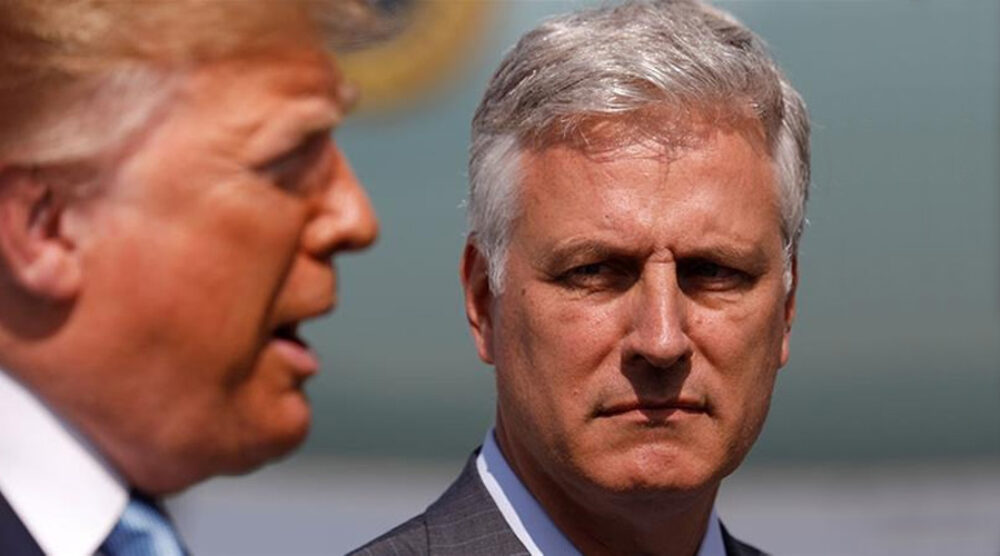Steve Bannon, the former White House chief strategist, claims that US President Donald Trump has put together a ‘war council’ to take down the Chinese Communist Party (CCP) during the COVID-19 pandemic.
There have been a series of rhetorical attacks directed at the CCP from high-ranking US officials since late June. National Security Adviser Robert O’Brien, FBI Director Christopher Wray, Attorney General William Barr and Secretary of State Mike Pompeo have been dubbed the ‘four horsemen of the apocalypse’ tasked by Trump to overthrow the CCP. The Trump administration has taken concrete actions to decouple bilateral relations by closing the Chinese Consulate General in Houston, sending Health Secretary Alex Azar to Taiwan and attempting to ban Chinese social-media giants TikTok and WeChat in the United States.
China’s reactions have been surprisingly conciliatory given its reputation for ‘wolf warrior’ diplomacy and tit-for-tat actions against the United States. In an interview with Xinhua on 5 August, China’s Foreign Minister Wang Yi firmly rejected the idea of a new Cold War and proposed easing current tensions through dialogue ‘at any level, in any area and at any time’.
Two days later Yang Jiechi, Director of the Office of Foreign Affairs of the CCP, published an article titled ‘Respect History, Look to the Future and Firmly Safeguard and Stabilise China–US Relations’. Yang praised the legacy of US engagement with China — pioneered by the Nixon administration — and called for more ‘mutually beneficial cooperation in all fields’.
China’s goodwill diplomacy seems too little too late because no one in the Trump administration is taking it seriously. Beijing’s call for dialogue is falling on deaf ears in Washington in part because any such communication is seen as ‘diplomatic kowtowing’ by the United States.
But this interpretation of Chinese diplomacy seems overly simplistic. Chinese culture and history offer a better way to understand the three messages China intends to convey to salvage relations with the United States.
First, China does not want a Cold War with the United States. Wang Yi remarked that ‘China was not the former Soviet Union and it had no intention of becoming another United States’. This might be wishful thinking from the CCP, but it takes two to tango, and China has informed the United States that it will avoid the ‘Cold War trap’ that ensnared the Soviet Union and the United States.
Please click here to read the full “Listening in on US–China relations” article published at East Asia Forum, written by Griffith Asia Institute researcher, Professor Kai He.








